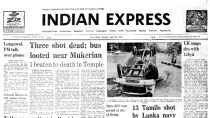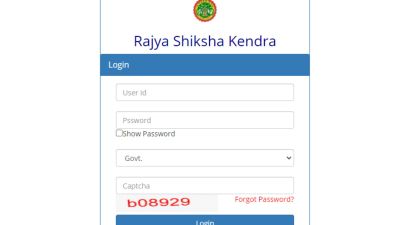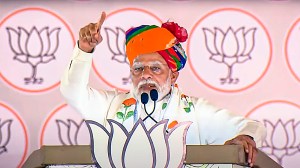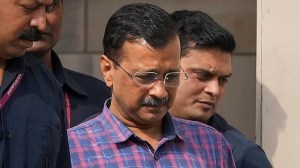- India
- International
CAB, NRC threaten to undo strides that Bangladesh, India took in recent past
It is only under Prime Minister Sheikh Hasina’s leadership — after the electoral victory of the Awami League-led alliance in 2008 — that Bangladesh made a complete U-turn in its approach to India.
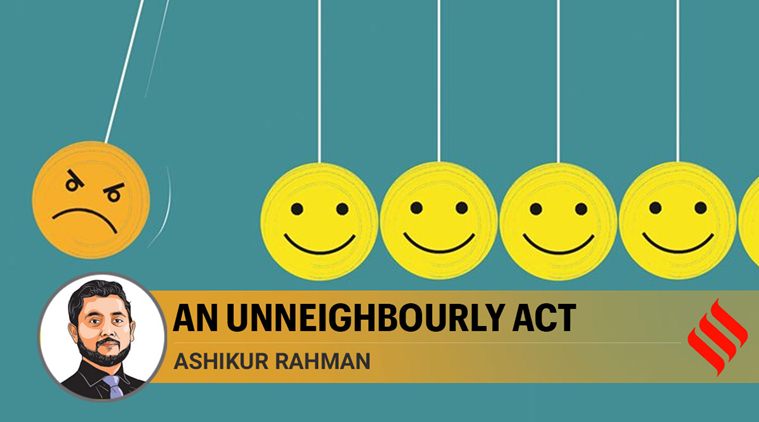 Bilateral ties that overcame such strong historic impediments deserve respect, as they were created with hard work, meticulous political strategies, good intent and visionary leadership.
Bilateral ties that overcame such strong historic impediments deserve respect, as they were created with hard work, meticulous political strategies, good intent and visionary leadership.
It is unclear why any nation — where its political leadership has the right mindset — will risk jeopardising an international bilateral partnership that is rooted in both historic sanctity and strategic value. Yet, the actions and the political philosophy of the ruling NDA government in India — manifested in the recently passed Citizenship Amendment Bill (CAB) and the National Register of Citizens (NRC) — are increasingly threatening the country’s friendship with Bangladesh that emerged out of troubled waters.
Bangladesh and India’s nearly five-decade old bilateral relationship has been anything but steady. The few early years of positive engagement after 1971, when Bangladesh was being salvaged from its war-torn state under the stewardship of its founding father Bangabandhu Sheikh Mujibur Rahman, saw a dramatic reversal with the assassination of Mujib in 1975.
In fact, the resurrection of military leaders and anti-Indian political and Islamic forces within the politics of Bangladesh after 1975 meant that India and Bangladesh could not form an alliance rooted in trust. And this precarious relationship reached rock bottom when the BNP and the Jamaat-e-Islami’s coalition government sponsored insurgency activities against the north-eastern states of India between 2001 and 2006 by allowing separatist leaders to use Bangladesh’s sovereign territories for their terrorist operations.
It is only under Prime Minister Sheikh Hasina’s leadership — after the electoral victory of the Awami League-led alliance in 2008 — that Bangladesh made a complete U-turn in its approach to India. Further, there is little debate today that the Bangladesh-India partnership has greatly benefited from Hasina’s patronage of goodwill-generating initiatives. Bangladesh has also shown an unfettered commitment to India’s national security by showing zero-tolerance for all forms of terrorism.
However, recent political developments within India could threaten the friendship that Bangladesh has nurtured, maintained and remains committed to. More specifically, the Government of India’s decision to go ahead with the passing of the CAB will now aid the political implementation of the NRC as it gives special status to Hindus and people belonging to other religions but not to Muslims. And while the passage of the CAB was immediately followed by the cancellation of official visits by Bangladesh’s home minister and foreign minister, both sides still officially maintain that the NRC is India’s internal issue. This is so even though the political rhetoric in India is advocating the expulsion of “Muslim infiltrators” from Bangladesh, Pakistan and Afghanistan, which contradicts Delhi’s official position with Bangladesh.

This is precisely why many in Bangladesh believe that the NRC is blatantly disrespectful and risks undermining the only successful example of the “neighbourhood first policy” that the NDA government coined when they were elected to office in 2014. There are two available strategies the NDA government might opt to pursue in how to deal with the million-plus Muslims in Assam who are now considered infiltrators. These people can either be kept in secured camps or the Indian government can start pushing them back into Bangladesh. And while the first strategy might create an international uproar, the second is likely to completely destabilise the relationship that underpins cooperation between the two neighbours.
But this is not the only front to which the implications of the NRC will be restricted. The CAB and the NRC are instruments that try to facilitate the reconfiguration of India’s social fabric into two broad identities — Hindus and the rest — which serves only the narrow interests of the ruling coalition in Delhi, especially because it relies on religious identity-based jingoism as a political tool. Hence, the CAB and the NRC will deepen the communal divide that remains ever-present within the social fabric of South Asia.
It is also essential to underscore that in no civilised country can religion be the basis of citizenship, specifically if the founding principles of such nation states championed secular ideals and equality before the law. In that respect, the political and legal argument of the NDA government that categorises India as the natural homeland for Hindus but not for Muslims is not only an ideological regression, but it champions a philosophy that is inherently anti-Indian. And as this process plays out, it will open the window for new sources of destabilisation in both Bangladesh and India.
After all, if India’s right-wing Hindu forces find it justifiable to propagate a second-class citizenship for Indian Muslims and send controversially created “infiltrators” to Bangladesh, then what will stop Jamaat-e-Islami and other right-wing Islamic forces in Bangladesh from proposing similar standards for more than 10 million Bangladeshi Hindus? And how will secular and liberal forces in Bangladesh navigate this communal tension, with its root cause in the systematic persecution of minorities in India? Most importantly, how will any well-intentioned government in Bangladesh build a lasting partnership with India if the population at large becomes deeply distrusting and sceptical of such a partnership?
There is little doubt that one cannot ensure geopolitical stability, security and social harmony by legitimising a political strategy that aims to turn a democracy into a communal, majoritarian political order, particularly when the Subcontinent has navigated a deeply divisive past, culminating in a profound distrust for one’s neighbour.
Bilateral ties that overcame such strong historic impediments deserve respect, as they were created with hard work, meticulous political strategies, good intent and visionary leadership. Any political strategy that undermines such accomplishments merits reconsideration. Ties with Bangladesh, in particular, need careful consideration. Any crossing of the Rubicon while executing the NRC will undo the important strides that Bangladesh and India have together taken in the recent past. India, in this context, must prove that it is a respectful bilateral partner.
The writer is a senior economist at the Policy Research Institute of Bangladesh, Dhaka
EXPRESS OPINION
Must Read
More Explained
Apr 23: Latest News
- 01
- 02
- 03
- 04
- 05











